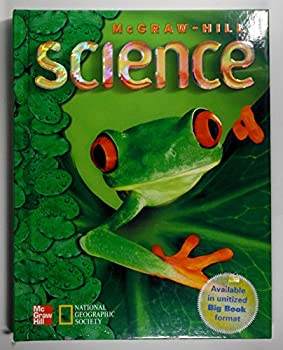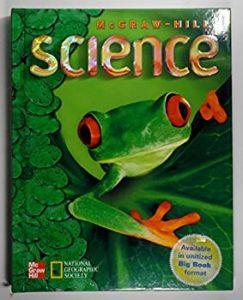

A friend posted this cartoon on Facebook this morning and it led to an interesting discussion.
Economist Roger Koppl wrote:
My second grade teacher told us the best things in life are free. After thinking about her statement I said, “The best things in life are free, but you have to have enough money to enjoy those free things.” She stared at me for a moment and replied in astonishment, “You’re right.”
I responded to Roger: “OMG. You probably should have known in second grade that you’d be an economist.”
And then that triggered a memory of a conversation I had with a school teacher when I was in grade 2. (In Canada, that’s how we referred to second grade.) In this case the teacher was my father, who was principal of the school in our small town and so he was in charge of 1-12. (Thank goodness we didn’t have kindergarten; it gave me an extra year of play.)
When I was in grade 1, parents had to buy the textbooks for their kids. There was an active resale market and a lot of parents bought used texts. When I was about to start grade 2, my father was all excited one evening because a government body, either the local school board or, more likely, the Manitoba provincial Department of Education, had decided that no longer would parents have to buy books; they would be provided.
Here’s the conversation that took place:
Dad: We can now get books for free.
David: But who’s paying for them?
Dad: They’re free.
David: Ya, but who’s paying for them? They can’t be free to everyone. Someone has to be paying.
He relented and confessed that taxpayers would pay for them.
That’s when I should have known that I would be an economist.
Here’s a conjecture: When this movement spread, both in Canada and the United States, the prices of textbooks, inflation-adjusted rose. The reason is that no longer would the parents feel the effect of textbook prices directly and so the textbook publishers would take advantage of the parents’ and the bureaucracy’s insensitivity to price.

READER COMMENTS
Mark Barbieri
Apr 8 2022 at 3:22pm
I was not nearly that perceptive as a child. It took me until college before I started to understand. I had the good fortune of losing many arguments to a some libertarian professors.
Dylan
Apr 8 2022 at 3:35pm
Makes sense, but I’m not entirely sure. In the previous model, when parents bought directly they had a choice of whether to buy used or new, but not a choice of what book to buy, since all students would have to have the same book and same edition. So years when a new book came out, all parents would have to buy new (but presumably they would be able to get more at resale for their copy than someone who bought later in the lifecycle of the book).
Moving to a model where there is more of a monopsony dynamic would tend to push prices down (I’m not clear on if textbooks are negotiated at the district level, state level, or something else)
Anecdotally, the school books I used tended to be very old and falling apart when we got them. But, they were much cheaper to replace than the college textbooks I had to buy myself (I had to buy a math book that got damaged in the rain, but it was only something like $30-40 compared to the $100+ for most of my college textbooks)
robc
Apr 8 2022 at 6:51pm
Are you me?
My math book not only got damaged in the rain, it sat in a drainage ditch all day and froze.
it got dropped into the ditch while waiting for morning bus and was found when the bus dropped me off that afternoon.
Thomas Lee Hutcheson
Apr 9 2022 at 8:23am
My economist’s moment came in a conversation with my mother who was recounting some bit of family financial history (mostly unsuccessful :)) and I said, “So you have to have money to make money!”
Monte
Apr 9 2022 at 11:37am
The college textbook industry is dominated by a small number of publishing firms, who, in concert with institutions of higher learning, work to stifle competition and keep prices high. When students resorted to buying used books or renting from bookstores, publishers started bundling new textbooks with special codes to restrict access. And where textbook revisions (and, consequently, the requirement for students to buy new) used to occur every 5-7 years, they now occur every 2-3 years. The value-added is typically small, consisting of nothing more than a reordering of chapters or page numbers.
Recently, however, lower cost digital alternatives have been made available (open source textbooks, torrented digital copies, etc.) and some courses are being taught text-free, resulting in significant savings to students,
Mark Brady
Apr 10 2022 at 6:04pm
Two thoughts.
1. In the early 1980s I knew someone who was involved in creating textbooks for high schools, and they understood not to include pictures of black doctors and white children lest it preclude consideration of their books by the Texas authorities. Nowadays, I dare say that they are expected to include pictures of black doctors and white children!
2. When in the 1970s (and 1992) I taught secondary school in the UK, my and the other departments in each school had discretion as to their choice of textbooks. I have no reason to believe that this practice has changed.
Grand Rapids Mike
Apr 11 2022 at 3:54pm
My economist moment came, if you can call it that, in GR JC ie Junior College. In Freshman English class, a 10-12 page paper was required on a controversial subject. Given this was in the fall of 1967, my paper was on the pro and cons of the economics of LBJ policy of raising taxes for spending on the Vietnam war. So this was prior to my first econ course, which I took the next year. So it was written without any technical training of macro policy, but I covered the issues as best I understood at the time. This started my fascination with econ issues. However it was my first formal in course in econ in my sophomore that really hooked me on econ.
David Henderson
Apr 12 2022 at 6:25pm
Interesting. Do you still have a copy? If so, was your reasoning good?
Comments are closed.